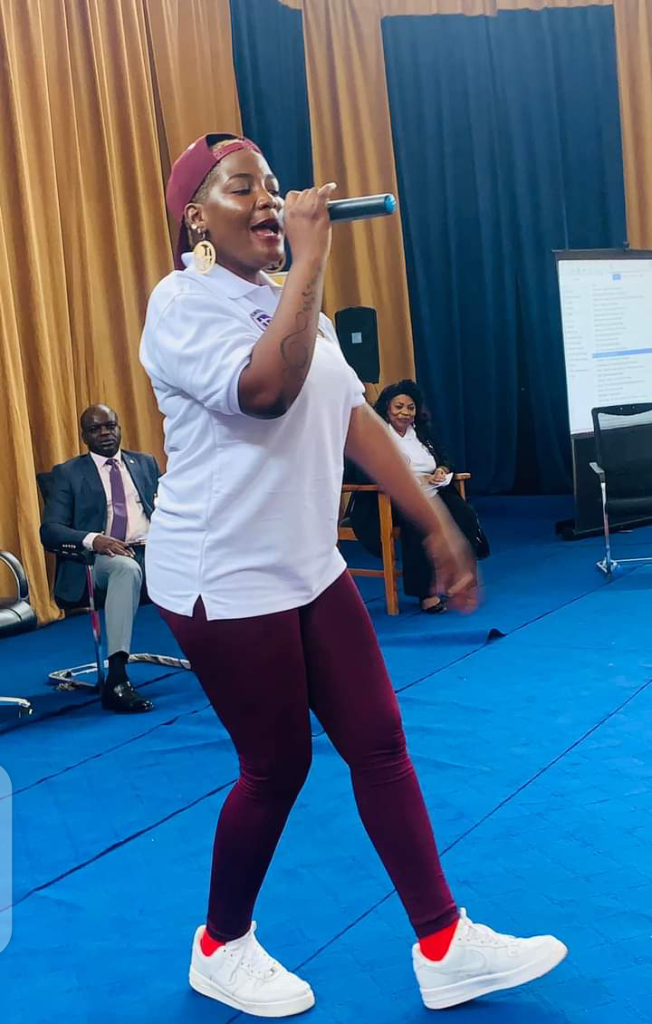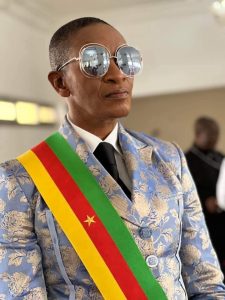For artists in Cameroon, sex is not a taboo subject. In fact, it is one of the most treated themes in songs of different genres, by artistes of different expressions, creeds and beliefs.
It is not uncommon to hear Bikutsi singers narrating their sexual prowess, or hip-hop artistes expressing what they did last week at the night club or after-party. And even singers of emerging genre, Mbole, often throw in a sexual reference or two. Despite these multiple sex references, finding music and musicians with educative content on the subject as well as on self-worth, is not the norm.
According to Gender, Education & Youth Development researcher/consultant, Dr Monique Kwachou, one of the reasons for this, is the ‘boring’ tag attributed to morally upright songs. “The reason why certain content, inspirational music is not as popular will be aside from the fact that human nature just goes towards the derogatory and the crazy. It is also because we seem to think that what is good and morally upright should be boring…”
More rare, is music geared at fostering self-awareness of young girls and educating them on life’s challenges. Reggae singer, Lantum Bertilla who goes by the moniker, Tilla has taken upon herself this task, fueled by her own story – a difficult past.

In 2015, Tilla released a song titled ‘girls’ in which she urged young ladies to break the yoke of rigid communal guidelines and be more expressive and cognizant of their sexuality too. “I was thinking about other girls and women, encouraging them to be themselves and not be scared of expressing themselves in an industry that is male-dominated. I was trying to have a voice for the females and I am really glad I made that sound because I was really trying to be heard and I wanted all the girls and women to feel like they have a voice,” she says of the creative process for the piece.
‘Girls’, like many of her works, she asserts, is aimed at encouraging women and girls to embrace and express themselves, regardless of the negative stereotypes attributed to them by certain societal norms and values. The content, coupled with her looks which alternate from tomboy, to “mommy” mode and sometimes super girly, are all ways to pass across the message. “That is all just part of being a woman. Being a woman doesn’t mean you have to put on a kaba all the time or a skirt. You can be a woman and still put on trousers or whatever you want to put on.”
Tilla also shares a similar view to music executive, Divine Verkijika, Managing Director at Lionn Academy, who believes the role of music in daily life cannot be underestimated. Given the role it plays in all aspects of media including movies, adverts and even daily life, he believes intentionality is a must.
“My greatest inspiration is myself. I sit down and think about what I have gone through and I say to myself there are many people that are definitely going through the same situation…” Tilla explains.
Legislation not solution
Tilla believes an ideal Cameroon is one where its girls are free to express themselves and become the best versions of themselves. But wishes are not horses, and it will take concrete action to see it materialize. But different artists have different agendas, styles and of course, content in their works. For this reason, there remains in the media, a plethora of music content with immoral lyrics and violence, served youths and adolescents on a daily basis.
Dr Kwachou recommends reeling in artists and having them actively engage in fruitful and educational sex conversations with their cult followership.
“You can engage them to talk with young people about those things they made, things they wish they knew about sex and into a sex education campaign.it is very easy to engage them in that… And we can always engage artistes in a song like artists united against perhaps immorality or school violence that is going on right now.”
The researcher however believes passing legislation to censor music lyrics will be nothing short of a cosmetic measure and a front on creativity and art. An intentional campaign focused on rewarding morally upright content to her, will be more practical.
She explains: “Musical regulation can be done in a positive way content-wise especially… make it in a way that they want to produce high quality content, make it in a way that awards are not just a popularity contest but there is a music body that judges them based on quality, one that is transparent, one that we can actually say yeah this was the most popular song but this other song was the most meaningful song so it is getting the higher award.”
This, she believes, can positively encourage artistes to produce better content and not just viral songs targeting adolescent hormones.

To Divine Verkijika, who doubles as divisional President of the National Youth Council artists’ works are a representation of society, and so more of the blame should be placed on media channels that diffuse content so they set the standards right.
“Society too these days is really divided between the conservatives and the progressives in ways that I think those who influence society really need to think about. But I think beyond that there is an important point in terms of regularisation … It will definitely help if there are some rules. Not preventing artists from being free, but controlling how the public accesses such information,” he says.
To Dr Kwachou however, a more proactive solution lies in improving the quality of parenting. With parents being the first teachers and automatically role models, she thinks the burden lies on them to regulate how much of society their kids get exposed to. And as plausible as the solution appears, it too has its limitations.
“Unfortunately, we live in a society where people are encouraged to have kids but there is not a lot being said about the quality of parenting,” she says, adding “it is a major problem we need to address and can’t be passing unto media and artists, the blame…”
There exists a law on the regulation of cultural and artistic associations in Cameroon. But it goes nowhere near addressing the content of musical works, and the audiences to which they should be diffused, as well as at what moments of the day. With the ball in the court of artists and music distributors, parents can only pray that they play it fair.
Giyo Ndzi









